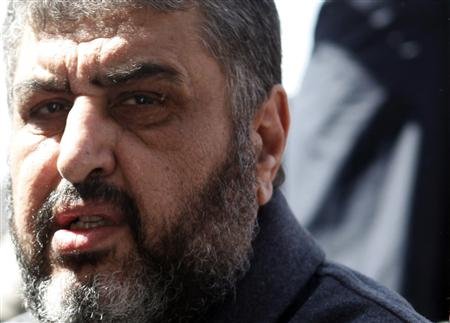
The media has distorted the image of the Muslim Brotherhood and its presidential candidate Mohamed Morsy, Khairat al-Shater, deputy leader of the Brotherhood, said on Thursday.
"The devils among mankind and the jinn in the media are working to tarnish the image of the Muslim Brotherhood and the nominee of the Freedom and Justice Party," he said during a campaign rally for Morsy in Alexandria.
He added that Egypt does not need a president who belongs to the former regime, whether a minister or a prime minister, who failed to develop the country. He said it would not be good to have a president who takes people back decades.
Morsy is competing against Islamist candidates and others who held cabinet posts under former President Hosni Mubarak, such as Amr Moussa, foreign minister in the 1990s, and Ahmed Shafiq, former civil aviation minister and briefly Mubarak's prime minister.
Shater said the Parliament has only legislative powers and cannot bring about change on its own because the Cabinet, which has the executive powers, is hampering its efforts.
During a meeting with public figures and representatives of the Alexandria Businessmen's Association that preceded the rally, Shater said that the Brotherhood adherents are not looking for high posts but executive powers to achieve a renaissance.
Shater said: "We differentiate between the armed forces and the military council, and are [against] threatening the power of the armed forces, its unity and cohesion, because any weakness that would befall the military means the potential loss of part of our land."
He added: "The military junta has two roles, the military one which is uncontestable, and the political role which we may disagree on. But we respect the armed forces."
He said: "We have the right to disagree politically with the military junta, when they do wrong, we tell them you wronged, and when they do right, we tell them you did right. Therefore we do not see clashes or deals, only different political positions."
He said there is a need to relate education to the needs of the labor market, and to ease social and sectarian tensions, saying "We cannot build renaissance without a state of social peace."
Edited translation from MENA



